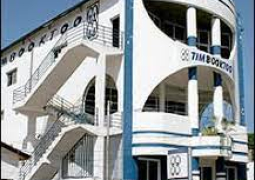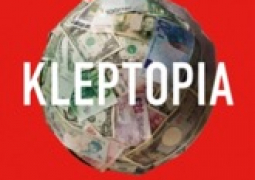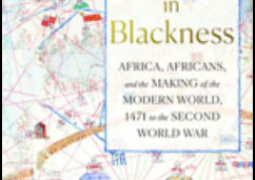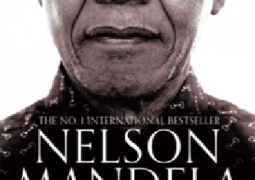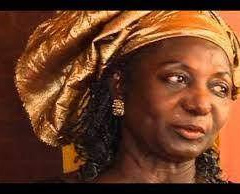
"Tell me, and I will forget; show me and I may remember; involve me, and I will understand," according to a well-known Chinese proverb. The value of using theatre in the classroom to increase student engagement and make learning memorable is encapsulated in the statement.
Because it fosters a creative environment that alters students' attitudes, behaviours, and knowledge, theatre in education goes beyond just entertainment. In creating a holistic learning environment that fosters students' emotional, intellectual, social, and physical growth, theatre plays a significant role in education.
Drama and art are two of the most effective ways to teach children soft skills and encourage emotional intelligence, according to schools worldwide. It is challenging to teach these abilities in a conventional educational setting.
Students are more likely to take an interest in a topic when exposed to it through theatre and other forms of creative expression. Because it's entertaining and easy to recall what they've seen or heard, most kids are receptive to and enjoy participating in educational theatre. Students who take drama lessons report an improvement in their ability to learn and retain information across a variety of disciplines.
By exposing actors and spectators to the very real consequences of drug use, theatre can help mitigate students' emotional vulnerability to the harmful effects of substance use. Teaching healthy habits like exercise and proper nutrition through theatre can similarly affect students' comprehension.
If you want your pupils to participate in their education actively, there's no better medium than live theatre. Stories told on stage frequently deal with weighty subjects, such as historical events or ongoing social problems. Therefore, students can benefit from the drama because it challenges them to think critically about their own experiences and the society around them rather than neglecting important societal issues.
It's much simpler to understand and deal with issues of social significance and modern-day challenges when students have some background information on the subject. Therefore, kids benefit from real-life role-playing scenarios to prepare for issues they may encounter in the future.
The Target Group of the drama mounted by Janet Badjan Young, are twelve University of The Gambia (UTG) students who had received training in Theatre Arts from Ms Grace Chapman, Théâtre-in-Education Consultant, Department of Arts and Sciences, UTG. They are well equipped with skills necessary for the success of the Project. Ms Chapman has been assisting Ebunjan Theatre Troupe for more than ten years.
Mr Emmanuel Joof, Chairperson National Human Rights Commission (NHRC), has supported and encouraged the Project. At the initial stage of the Project, valuable information was received from Ms Aminata L.B. Ceesay, Investigating Officer and Focal Person for Women and Children (NHRC)
Dr Cherno Omar Barry, a former Executive Secretary at the National Human Rights Commission, provided in-depth information on the Human Rights Situation, particularly of children in The Gambia. Children beg in the streets whilst their mothers sit by and watch. Young boys were used as Apprentices on minibuses and at building sites—unspeakable behaviour of adults entrusted with the education of girls, an endless list of Human Rights Violations.
In addition to being the smallest nation on African soil, The Gambia is nonetheless one of the poorest. 2.1 million people, or 48% of the population, live in poverty. The predominance of child labour in the nation is among the numerous signs of its high poverty rate. The Gambia is home to a sizable youth population. In the Gambia, the average age is 17, and 63 per cent of people are under 25. Most child workers are employed in the agricultural sector (almost 95%). In Banjul's major city, it's common to see children under 14 begging, washing cars, selling food, selling newspapers, and fixing bicycles. While some of these children have their parents' permission to shop on the street, others are orphans or grow up without parental guidance.
Even though just 20% of young people in The Gambia are currently employed, this is a significant increase from 36% in 2013. The Borgen Report shared a report in October 2019 written by Sarah Newgarden in which ten facts about child labour are highlighted. The populace is deprived of higher education due to child labour. The primary school completion rate in Gambia is 70%, and the first six years of elementary school are free and required by law. The READ (Results for Education Achievement and Development) project, funded by the World Bank in 2017, increased the standard of fundamental education in Gambian schools. The government took part in this project in 2017. However, between the ages of 5 and 14, most child labourers work and attend school, which impairs their learning capacity. After primary school, many child workers stop going to school or never do. Many Gambians who have not attended formal education consider it a waste of time that would be better spent earning money to support the family.
According to The Orphans in Need, The Gambia has a very high prevalence of underage weddings for females. To address this issue, the legal age of marriage was raised to 18 in 2016. Despite this modification in the legislation, getting married before the age of 18 is still very frequent because most marriages are not reported to the authorities. There is a gap in the new law because they are only symbolically formalised in a marriage ceremony. In The Gambia, 36 per cent of girls are forced into early marriages due to a lack of enforcement, even though a 2013 poll found that 16 per cent of women had married before the age of 15.
It would be recalled that in 1965, Lady Hannah Augusta Jawara, the first First Lady of the Gambia, wrote a play, Rebellion, under the pen name Ramatoulie Kinteh. Rebellion is a play of three acts. It describes the struggle of a young woman, Nysata, against retrograde traditions in a patriarchal society: the fight for girls’ education, the right to choose a husband, the establishment of a new parent-child relationship, etc. Nysata obtained her father’s consent to let her go to Great Britain to pursue medical studies.
The main objective of Janet Badjan-Young is to use Theatre: plays, music, dance, and poetry- a combination of the Arts to educate the public and the children on the plight of unfortunate Gambian Children. Equally important is what can be done to improve the lives of these children.
The initial phase during the training is to understand what a Play is. Who are a Playwright, and the elements of Playwriting? Several plays were read and analysed, including “The Hand of Fate?” based on a true Gambian story about early marriage. Several plays are still in working progress.
Among the plays written to be performed on November 19th and 20th are: A Bright Light turned off (early marriage) by Raki Jallow and Deception (female genital mutilation) by Mariama Sarr. The actors are students from Zenith International School, West African International School, Interior Academy and Banjulunding Upper Secondary School. The Performances will be at the Ebunjan Theatre.
On November 19, there is a close door staging of the plays at 7 p.m. at the Ebunjan Theatre in Kanifing Institutional Area. On the 20th November at 5 p.m. everybody in invited to come and watch these excellent plays Entrance is free. Students and parents are specially invited.


